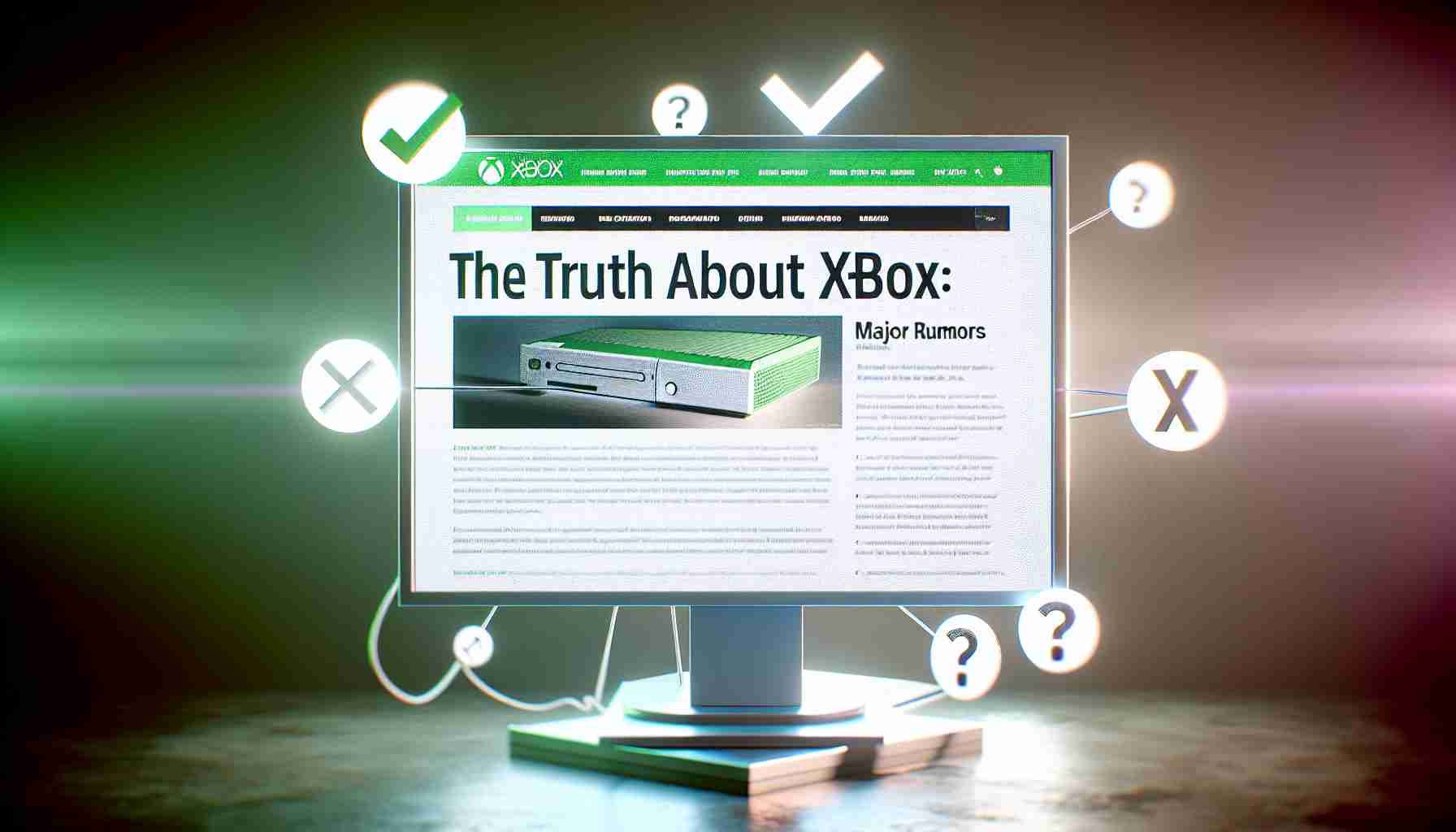Microsoft’s Commitment to Gaming Stands Strong
Over a year has passed since Activision Blizzard was acquired by Xbox, a move that stirred intense debate among global antitrust regulators. Since the acquisition, popular titles such as Diablo 4, Black Ops 6, and Crash have made their way to Game Pass, marking a significant shift in Microsoft’s gaming portfolio. However, alongside this growth, speculation and rumors continue to swirl around the future of Xbox.
Recently, a report from The Information alleged that Microsoft once contemplated shutting down its Xbox division in 2021 and suggested the purchase of Activision has not met expectations in terms of revenue. Xbox has firmly rejected these claims, arguing that the report misrepresents critical aspects of their business. They highlighted that over 85% of Xbox’s quarterly revenue growth has stemmed from Activision Blizzard’s contributions.
In response to the closure rumors, Microsoft emphasized its dedication to gaming, noting that their active player base has reached a historic 500 million monthly participants. Additionally, the cloud gaming segment continues to gain traction, further affirming the company’s strategic alignment with the gaming community.
The gain of new subscriptions for Game Pass, especially with the launch of Black Ops 6, illustrates Microsoft’s expanding reach and success in the gaming industry despite challenges in Xbox console sales.
Implications of Microsoft’s Gaming Strategy
Microsoft’s acquisition of Activision Blizzard not only reshapes its gaming ecosystem but also reverberates across the broader global gaming market. With 500 million monthly active gamers, the company is asserting its dominance in a sector poised to surpass $200 billion in annual revenue. The growing involvement of major tech firms like Microsoft signifies a trend toward increased integration of gaming in everyday life, impacting entertainment consumption, social interactions, and digital economies.
This shift could redefine cultural norms, as gaming assumes a central role in social networking. As platforms evolve, users increasingly engage not just in play but in content creation, fostering communities that transcend traditional boundaries. Furthermore, as cloud gaming gains traction, the accessibility of high-quality gaming experiences may bridge divides in socioeconomic status, democratizing entertainment through subscription models.
However, the ambition comes with potential environmental repercussions. The rising demand for cloud-based gaming increases the reliance on powerful data centers, which are significant energy consumers. As Microsoft’s gaming strategy unfolds, the company must address sustainability, mitigating the impact of its operations on the environment.
Ultimately, the long-term significance of Microsoft’s gaming commitment could extend to the global economy, where innovations in technology spur job creation and investment. Microsoft’s moves in this arena could herald a new era, making gaming a foundational pillar of the modern economy. Thus, as gaming evolves from mere pastime to primary cultural touchstone, its implications for society and the economy remain profound and multifaceted.
Microsoft’s Gaming Future: Innovations and Market Trends Explored
The Evolution of Microsoft’s Gaming Strategy
Since the acquisition of Activision Blizzard, Microsoft has positioned itself as a formidable player in the gaming industry. The integration of popular franchises like Diablo 4, Black Ops 6, and the iconic Crash series into their Game Pass service exemplifies a strategic shift toward subscription-based gaming, which is gaining momentum across the industry.
Insights into Xbox’s Growth and Challenges
Despite facing skepticism regarding its Xbox division’s future, Microsoft’s recent financial results tell a different story. Over the past year, the company reported that more than 85% of its quarterly revenue growth has been driven by the inclusion of Activision Blizzard titles. This underscores the importance of acquired franchises in enhancing the Xbox ecosystem.
Market Analysis: The Rise of Game Pass
Microsoft’s Game Pass service has seen a significant increase in subscriptions, particularly following prominent game launches like Black Ops 6. The combination of extensive gameplay options and compelling titles has attracted a diverse player base. As of now, Xbox boasts a remarkable 500 million monthly active users, showcasing the effectiveness of its growth strategy.
Trends in Cloud Gaming
Cloud gaming is becoming an integral part of Microsoft’s strategy, continuing to attract players who favor flexibility and accessibility over traditional console gaming. With advancements in technology and network capabilities, Microsoft aims to solidify its position as a leader in this sector.
Pros and Cons of Microsoft’s Gaming Strategies
Pros:
– Strong Subscriber Growth: Game Pass has seen monumental growth, indicating a shift in consumer preferences towards subscriptions.
– Diverse Game Library: The inclusion of major franchises enhances user engagement and satisfaction.
– Market Leadership in Cloud Gaming: Microsoft is at the forefront of cloud gaming innovations, responding to changing gaming habits.
Cons:
– Console Sales Challenges: Despite strong software growth, there are ongoing challenges with Xbox console sales.
– Regulatory Scrutiny: The acquisition of Activision Blizzard continues to face regulatory investigations which may affect strategic planning.
Future Predictions for Microsoft’s Gaming Division
Looking ahead, analysts predict that Microsoft will focus on further expanding its Game Pass offerings and enhancing cloud gaming capabilities. As more players migrate towards subscription models, Microsoft is expected to innovate by adding exclusive titles and improving user experience through technology enhancements.
How to Optimize Your Xbox Experience
1. Leverage Game Pass: Subscribe to Game Pass to access a vast library of games.
2. Explore Cloud Gaming Options: Use Xbox Cloud Gaming to play your favorite titles on multiple devices.
3. Stay Updated: Keep an eye on new releases and updates to make the most of your Xbox gaming experience.
Conclusion
Microsoft’s commitment to gaming is unwavering, with strategic investments and innovations shaping the future of the Xbox brand. While challenges exist, the company’s ability to adapt and evolve in response to market trends positions it favorably within the competitive landscape of the gaming industry. For more insights on Microsoft’s gaming initiatives, visit the official Xbox website.
